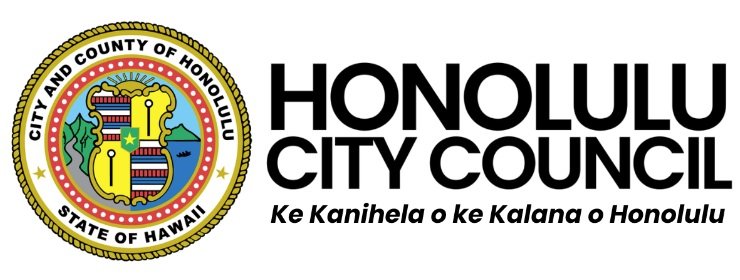City Council approves Fiscal Year 2021-22 budget
Investments made in key areas for COVID economic recovery and community resilience
HONOLULU, HAWAI‘I — The Honolulu City Council today unanimously approved city operating and capital budgets focused on increasing desperately needed affordable housing, expanding crucial city services such as stream cleaning and supporting economic diversification through local agriculture and small business assistance. “Our budget isn’t just numbers on paper,” said Tommy Waters, Honolulu City Council chair and presiding officer. “It captures our community priorities and shows a pathway out of the pandemic and moving us towards a stronger and more sustainable economy.”
$170 million for affordable housing
$5 million agriculture grants for local farmers
$22.6 million homeless services
$1.15 million for stream cleaning, needed staff and equipment
$500,000 mobile crisis unit to assist first responders in non-criminal homelessness/mental
health cases
The Fiscal Year 2022, $2.924 billion operating budget takes effect on July 1, and represents a slight decrease of $39.8 million in the non-federal funding operating budget, compared to last year’s budget. The $1.403 billion capital budget for Fiscal Year 2022 is 1.5 percent higher than the previous fiscal year, and includes several critical projects that will improve infrastructure and safety for island residents. “ After 49 years of public service as a state legislator and now a city councilmember, I know that the challenge of finding and appropriating sufficient funds for well-planned services, requires an approach that encompasses both our fiscal and moral values,” said Council Budget Committee Chair Calvin Say. “I want to thank my Council colleagues for their thoughtful and collaborative approach — it proves that at the local government level we can all work together to protect city services and help our residents through the coming year.”
The Council prioritized several areas when evaluating Mayor Blangiardi’s budget proposal. The Council restored $100 million in the Capital Improvement Project budget for affordable housing development at a time when houselessness is expected to increase, with the lifting of the eviction moratorium this month. Prior budget allocations succeeded in building more than 2,000 units during the past three years for more than 3,000 homeless seniors, youth and other low-income families. Hawai‘i will have a housing shortage of 22,000 units by 2025. The Council also restored $2.6 million that had been proposed by the Administration to be cut from homeless services.
“While the Council added several critical projects and programs to the operating budget, it alsofound areas to reduce expenses and ensure a balanced budget. Besides allocating approximately $28 million in federal ARPA funds as part of the budget process to support certain items, the Council also re-purposed approximately $38 million in funds from the Department of Transportation Services that had previously been dedicated to interim operation of the Honolulu rail system.”
“This budget helps address key community priorities and cost of living concerns,” said Vice Chair Esther Kia‘āina, who also chairs the Council’s Committee on Housing & the Economy. “We need increased affordable housing, economic diversification and food security for our families and our kūpuna − and to do that we need to build more affordable housing units and support our local farmers and food production.”
The Council made concrete changes during the budget process to address community and business calls for a more diversified island economy to decrease our dependence on the visitor industry and support sustainable activities that benefit our people and our land. To that end, $5 million for agriculture grants was added to the budget to support local farming and strengthen local food production for O‘ahu’s people.
Dedicated funding was also added for increased stream maintenance to help address increased climate risks and the disastrous flooding to O‘ahu homes and businesses seen earlier this year and in years past. Deferred maintenance on such public infrastructure can lead to dangerous and avoidable consequences, council members agreed, during budget negotiations.
The Council also worked in partnership with the Blangiardi administration to support key shared goals to help government operate more efficiently and leverage more federal resources. Funding was added to the budget to reform and modernize City Department of Planning and Permitting processes and to add a special unit within the Office of Economic Revitalization with the specific task of seeking, securing and administering additional federal grant funding in partnership with all City departments. While the cost of such a unit will be below $500,000 to the City, it will likely bring in tens of millions of dollars in long-term funds to support island projects and programs that will also help Oʻahu recover from the economic and social impacts of COVID-19.
